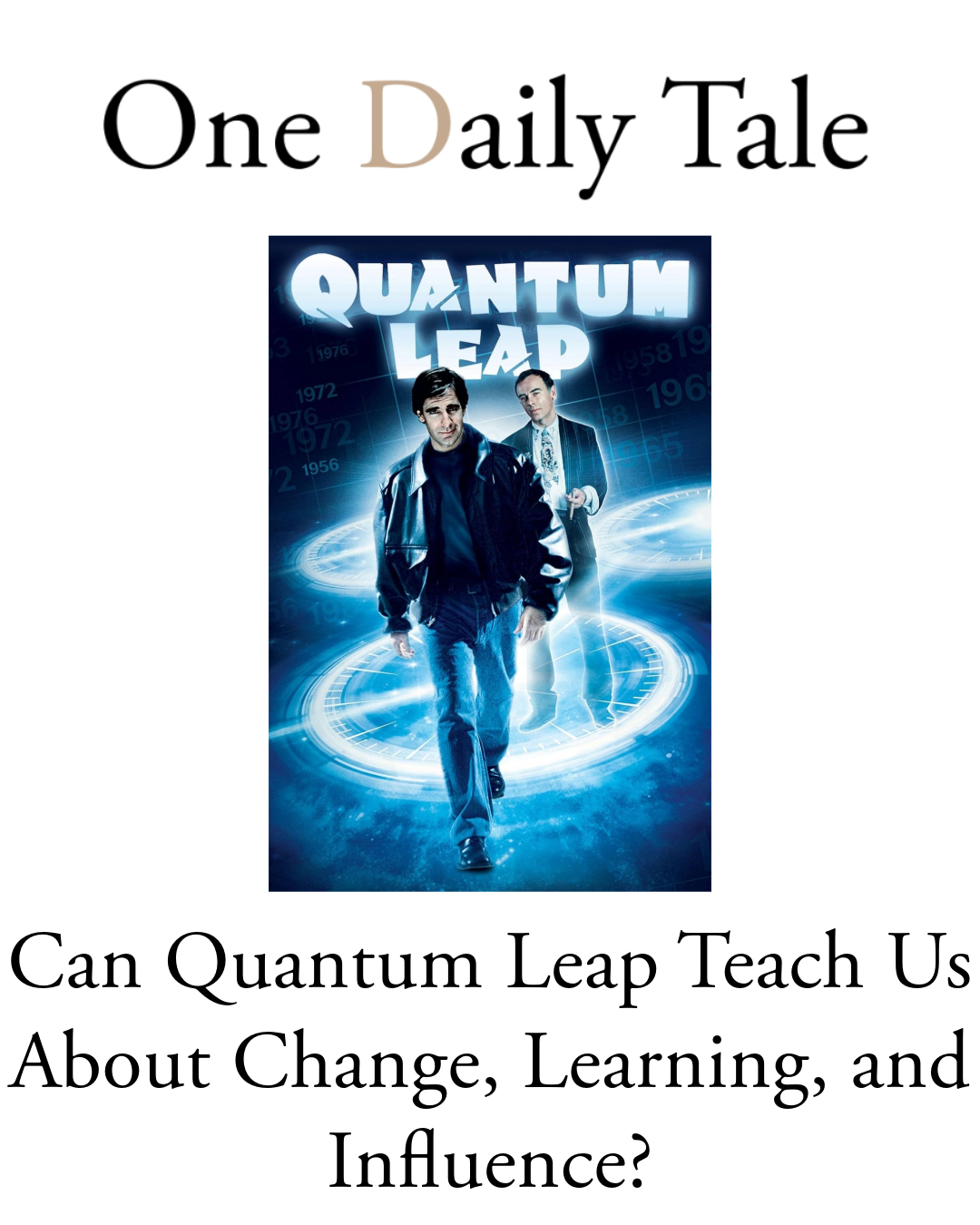Why do we fantasize about changing the past instead of shaping the future?
Quantum Leap is an American science fiction television series created by Donald P. Bellisario in 1989. I watched it when it aired on French TV, and it was certainly one of my favorite shows. The concept was fascinating—each episode followed the main character, Sam Beckett, as he “leaped” into different people’s lives across time. Every episode offered a fresh perspective on the “same world,” making each adventure feel unique. It always made me reflect on the importance of adaptability—a skill that can be incredibly valuable in real life.
One of the central questions raised by the series is: why do we often wish to return to the past to fix the present? Why don’t we focus instead on working hard in the present to build a better future? The answer seems to lie in how our brain operates. We naturally visualize what we already know, while imagining the unknown feels uncertain and unpredictable. Our brains crave the path of least resistance—just as choosing a healthy meal over fast food requires willpower, so does choosing to take action in the present rather than daydreaming about rewriting the past. Fantasizing about fixing past mistakes is easier than actively improving our present, but it often keeps us from making real progress.
Could we change the past if we had the chance?
If we were in Sam Beckett’s shoes, would we really be able to change the past? The series portrays Sam as an exceptional individual—a super genius with six doctoral degrees, a black belt in kung fu, a photographic memory, and near-virtuosic musical talent. With such an impressive skill set, he can seamlessly step into almost anyone’s life. Comparing ourselves to him might seem unrealistic, but the core idea remains relevant: a lifelong commitment to learning can significantly enrich our lives.
Constantly sharpening our skills, developing new ones, and staying curious about the world around us are habits that will always serve us well. Loving to learn is perhaps one of the greatest gifts we can cultivate. A growth mindset, the willingness to embrace challenges, and the desire to understand how things work all contribute to a more fulfilling and impactful life.
How do we influence others—consciously or unconsciously?
In the 71st episode of Quantum Leap, Sam becomes a cab driver in New York. In a memorable cameo, a young Donald Trump enters his cab, and Sam unwittingly gives him hints about the city’s future as an entrepreneurial hub. This scene highlights an important truth: our words and environment have a profound impact on others.
The maxims and beliefs we internalize often shape our thoughts, aspirations, and behaviors. Children, in particular, learn by mimicking—the actions they observe in adults become part of their own development. Whether we realize it or not, we influence those around us—sometimes for the better, and sometimes for the worse. The question is: how do we want to influence others?
How about you? Have you ever found yourself dwelling on the past instead of taking action in the present? How do you think your words and actions influence those around you? Share your thoughts in the comments!










Leave a Reply